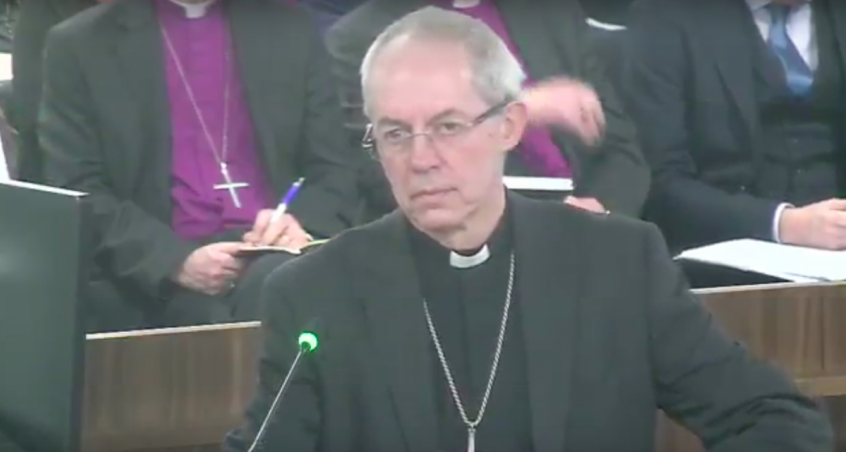The Church of England is releasing special liturgies asking forgiveness for abuse committed by priests.
The new prayers, readings and suggested hymns ask God to 'destroy the masks of evil' as the Church grapples with how to respond to hundreds of allegations of abuse against clergy and church officers.

The 16-page resource includes a baptism-style commissioning service for a safeguarding officer where the appointee responds by saying 'with the help of God I will' to a series of questions from the minister.
It also makes recommendations for services of penitence and healing, includes asking for forgiveness 'for the times when people have been abused', 'for self-deceit and colluding with falsehood' and 'for sins of negligence and ignorance'.
The Church of England faced more than 700 allegations or concerns of abuse committed by church officers in 2016 alone. The lead bishop on safeguarding, Peter Hancock, warned the CofE's ruling general synod it faced years of shame as bishops went before the independent inquiry into child sex abuse.
Following three weeks of hearings in March the archbishop of Canterbury, Justin Welby, said he had 'learnt to be ashamed again of the church' and warned abuse would 'destroy' the institution if it continued.
Robert Atwell, the bishop of Exeter and chair of the CofE's Liturgical Commission, said the Church must be 'at the vanguard of fostering a change of culture across society' towards abuse.
'In recent years we have become acutely aware of the way in which historic incidents of abuse were sometimes hidden or even tolerated,' he said. 'There must be zero tolerance to such behaviour. As an organisation, it is vital that we keep people safe, repent and apologise for the wrongs of the past, and learn from our mistakes, including when we have added insult to injury by not responding well when people have disclosed abuse. We need to support survivors better and enable them to flourish.'
He added the collation of liturgies included contributions from survivors themselves.
A representative of a survivor charity said: 'I have read through the liturgical resources document several times and have not found anything that gives me cause for concern, or made me feel uncomfortable in any way. It is calm, reflective and offers hope to all who will read it and share in its purpose, which I believe is to provide spiritual comfort, while offering practical guidance in dealing with the complex reality of the impact and harm caused by the abuse of power used against vulnerable people, be they children or adults.'
Libby Lane, the bishop of Stockport and a member of the bishops' delegation committee, a sub-committee of the House of Bishops, said she had been 'profoundly moved' by an abuse survivor who had found healing within the church and for 'his continuing trust in an institution in which such betrayal of trust occurred'.
She said: 'I recognise that other survivors have sadly had a very different experience of Church, so it is with humility that these resources for such prayer are commended.
'There are no quick fixes for the Church in safeguarding: new policies, procedures and resources will never take away the lifetime of pain that a survivor carries nor do they excuse or disguise the Church's lack of action and inadequate response,' she said.
'For those of us striving to listen and respond better to the voices of those we have damaged acknowledging the failure of the Church, prayer is a necessary part of our repentance, reform and renewal.'



